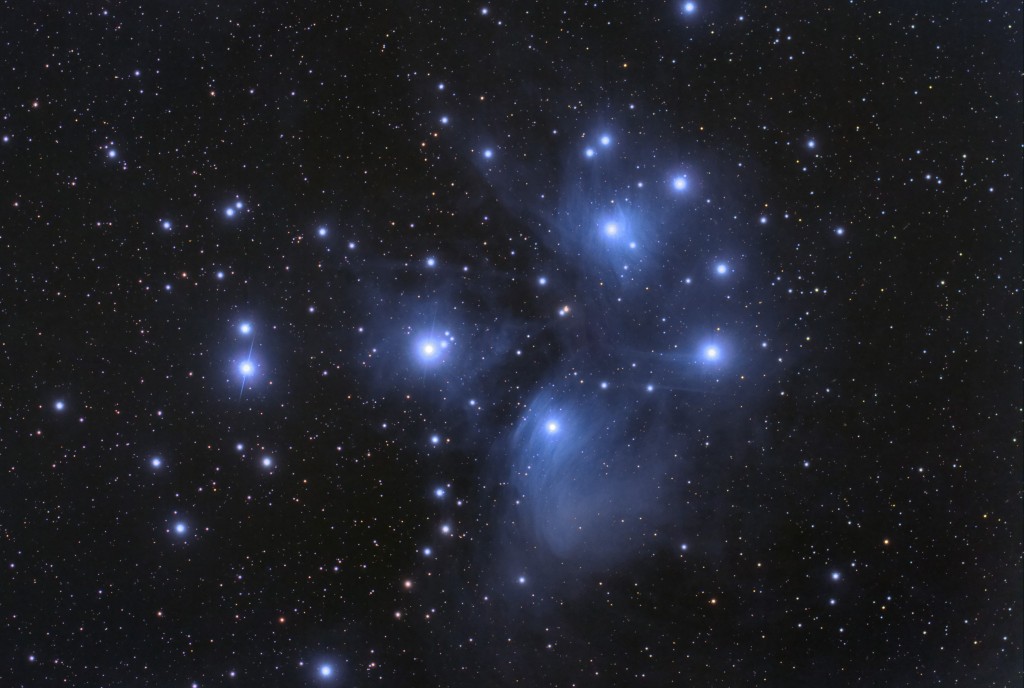
Here’s the obligatory M45 image for the month of October, 2013. I shot this while waiting for other objects to get into position.
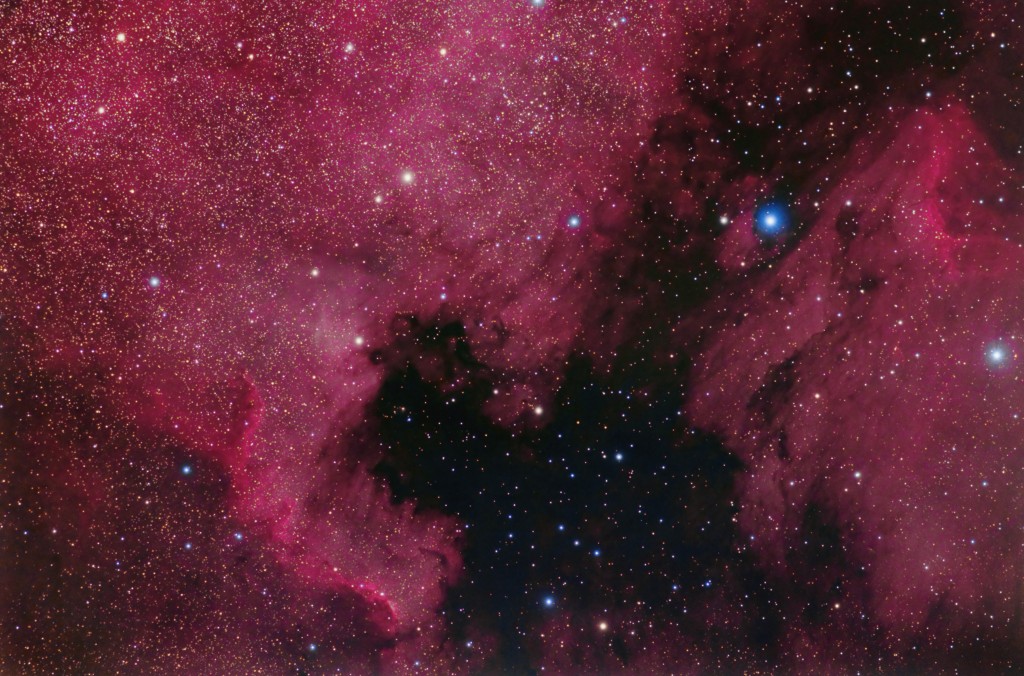
Here is the October 2013 version of this photogenic area of the sky. I used a high ISO and lots of sub-images. Noise was low, which was good. Color was more difficult to deal with than a lower ISO stack normally is.
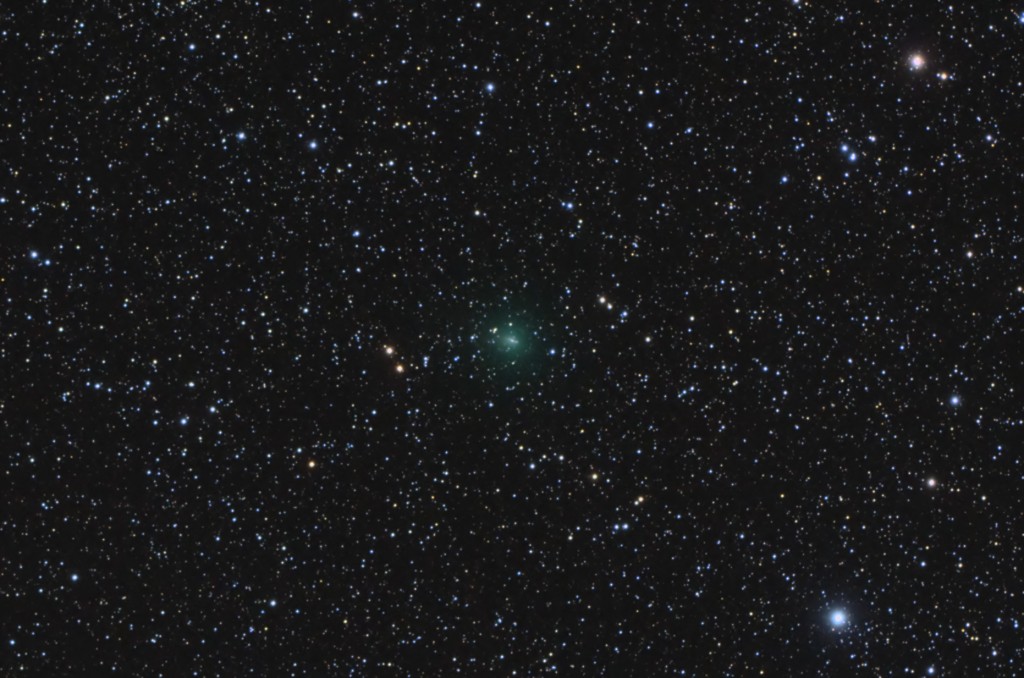
Just before dawn broke on Wednesday, October 9th, 2013 and put a stop to imaging the night sky, Comet Lovejoy cleared the trees in my backyard. I was able to get 20 minutes worth of data on it before the sub-images were too blue from the twilight to use for stacking.
Continue reading Comet Lovejoy (C/2013 R1) on October 9, 2013
It is somewhat unusual to have 3 relatively bright comets all in the morning sky at the same time. This one, I think, is the brightest and the other two, Comet Lovejoy and Comet ISON, are close behind. Anyway, I managed to get data on all three comet in two mornings of imaging. Its a comet hunter’s dream come true!
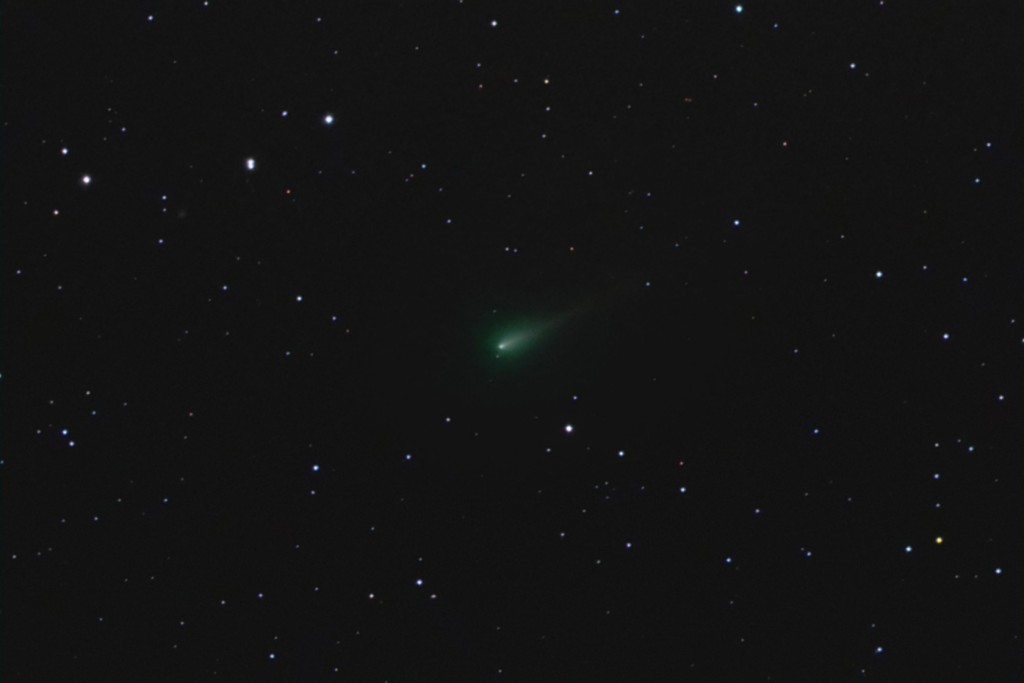
Here is my first Comet ISON image. It was low in the east in lots of light pollution, but I managed to get enough shots to make a reasonable image. I had to cut down a small tree the afternoon before taking this to get a clear shot.
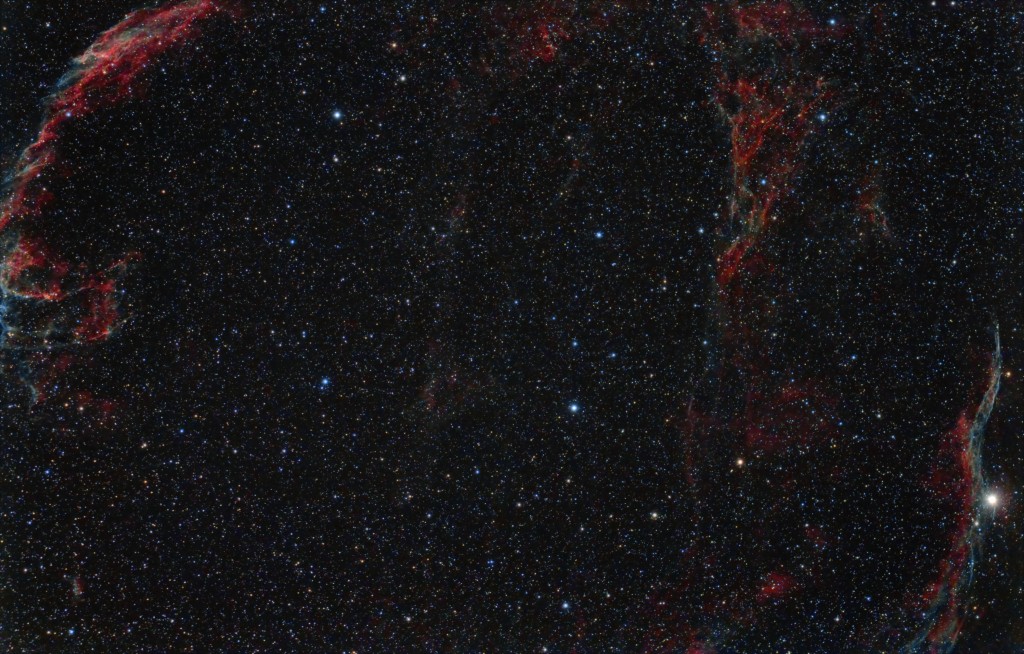
This was taken with my TV 85 and a modified Canon T3. It is only 26×180 sec sub-images @ ISO 1600. I was just testing the scope, mount and computer to make sure it all still worked, since the last time I used it was last April.
A new film is out with the best high quality images available of Earth and Space taken by various space probes, professional observatories and amateurs. Maarten Roos, a planetary scientist, is the filmmaker and William Zeitler is the musical soundtrack composer.
Here’s a video excerpt from the DVD:
Below are a couple of stills from their website. The first image is a NASA/JPL image of Comet Hartley 2 from a spacecraft and the one below it, (by yours truly,) is an image from Earth.
Quote from their website:
“Do you look up on a clear night and gaze in wonder on the stars deep into the Universe? They provoke inspiration and awe, a moment of calm, quiet, and peace in our hectic world. Serene Universe combines the awe of the Universe with these healing moments of serenity. It is a unique one hour film experience in which images and music are intimately intertwined. Starting on our beautiful planet, Serene Universe takes you slowly above the Earth, into the Solar System, the Galaxy, Deep Space and finally your inner space.”
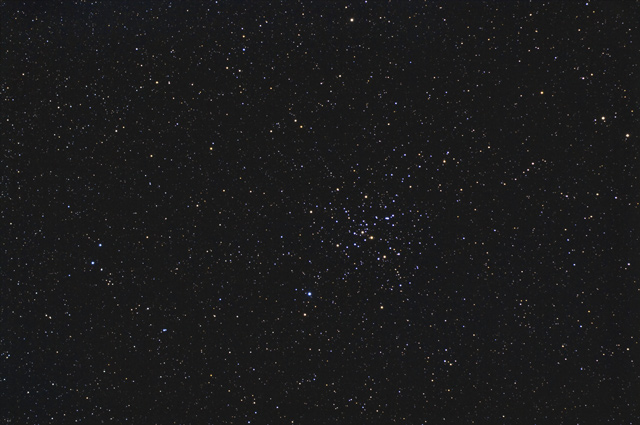
An easy to find open cluster that lies just below Sirius, the brightest star in our skies here in the northern hemisphere. I had just setup and needed something to test the rig and make sure everything was working. M41 was convenient so I shot 10 x 3 minute sub-images and combined those to get this final image. There was lots of moonlight and LP, so open and globular cluster shooting is about all you can do in such conditions.
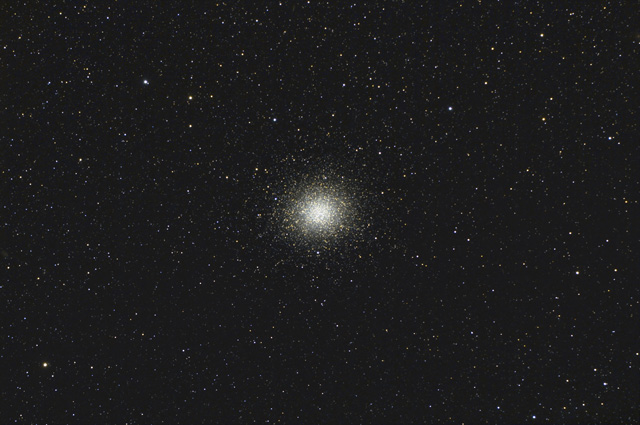
I camped out on Friday night, April 19, 2013 at the old family farm property. I brought everything I needed to image with my Televue TV-85 APO refractor, including my Atlas EQ-G mount. What a load! lol I had fun even with a bright moon out. As soon as Omega Centauri was visible, I started imaging it. Three minutes at ISO 400 was as much as I could go with the moonlight and LP, so I tried to get as many sub-images as possible. I ended up with 42×3 min for a total of 2 hours and 6 minutes worth of integration.